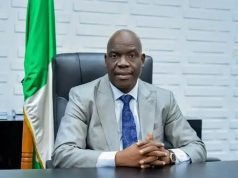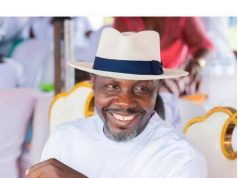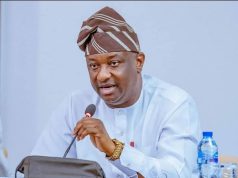Nigeria has at different points in her history had democratic governments since she gained independence from Britain in 1960. After the first three attempts at democratic governance, all of which combined lasted less than ten years, the Fourth Republic has managed to last twenty three years, going on twenty four. One key issue in each of the first three republics is that of transition management and capturing the interests of the many component parts of the federal republic of Nigeria.
The Fourth Republic has not been without its fair share of challenges in elections and transition, so much so that former President Umaru Musa Yar’Adua openly declared that the election that brought him on board was fraught with irregularities at his inauguration. Yar’Adua would then make a firm promise to reform the electoral process, which led to the constitution of the Justice Muhammad Lawal Uwais Panel of Electoral Reforms. His successor Dr. Goodluck Jonathan went on to implement the recommendations of the Uwais panel and bring about administrative and legal reforms.
In 2014 Nigeria witnessed a series of watershed events politically, one of which was the merger of a number of political parties to form what would become known as the All Progressives Congress (APC) that won the 2015 elections, removing the government of Jonathan. Jonathan would, in an unprecedented move by an incumbent in sub-Saharan Africa and a clear departure from the norm of botched transitions, put a phone call through to the winner General Muhammadu Buhari.
President Buhari won re-election in 2019 and as the 2023 elections approach the arguments on who should succeed him and how such a person should be chosen have gone up a couple of decibels, as is expected.
Earlier in the life of the government of the day it appeared that the two biggest partners in the APC merger appeared to have an agreement sewn up between themselves that the presidency would go to a south-westerner in 2023. So strong was this belief that in 2019 some south-west leaders campaigned on the argument that “a vote for President Buhari in 2019 is a vote for a Yoruba President in 2023”.
However, as 2023 approaches, the coast is becoming clearer and it becomes more obvious by the day that Buhari is more favourably disposed to handing over to a president of South-South extraction. This is in keeping with the tenet of rotational presidency that has helped stabilize the Fourth Republic, with presidency rotating between the north and south of Nigeria. Whereas the Southwest would want to lay claims to the presidency, it is clear that Buhari is tilting towards the South-South in the interest of equity and fairness, as the South-West have had a taste of the presidency under Chief Olusegun Obasanjo from 1999 to 2007, while Professor Yemi Osinbajo is currently serving a second term as incumbent Vice President.
A couple of names have been thrown up from the South-South geopolitical zone, as being interested in the presidency come 2023 such as the serving Transportation Minister Rt. Hon. Chibuike Rotimi Amaechi; Minister for Niger Delta Affairs, Senator (Dr.) Godswill Akpabio; Minister of State for Petroleum, Chief Timipre Sylva; and, former President Dr. Goodluck Ebele Jonathan. This article takes a looks at the various contenders from the South-South region for the office.
Amaechi served as a two-time governor and speaker of the State House of Assembly in Rivers State and is currently the Minister of Transportation. By offices held in the last 23years, Amaechi ought to possess the needed credentials to become president, but his temperament and people management skills stand against him. His political rise has often come at the expense of other people’s political capital and goodwill, which he went on to abuse after having climbed on the proverbial “shoulder of giants” to reach the top.
His mistreatment of Dr. Peter Odili over political differences, despite the fact that he became Speaker of the Rivers State House of Assembly through the benevolence of Odili, still looms large in political history. Amaechi also served as Personal Assistant on Student Affairs to Chief Rufus Ada-George, during the third republic, while he was still a student. His ill treatment of both of his predecessors and benefactors is on record, all of which point to how he will treat his predecessor as president, should he be considered, even though presidency requires a man whose emotions operate on an even keel. Amaechi also doesn’t have the required political capital as he has failed to deliver the goods outside of key power blocs, which means he would struggle to solve the Niger delta problem, having piggybacked on the strength of others.
Odili could not enter Rivers state throughout the eight years the current minister of Transportation was governor, even though Amaechi rode his coattails to prominence, which dovetailed into his emergence as governor of Rivers state. Presently Chief Ada George does not even own a car and Riverians think that that amounts to ill treatment on the part of Amaechi, given the offices he has held and is still holding.
Current Minister of State for Petroleum and former governor of Bayelsa state, Chief Timipre Sylva is another name that has been thrown into the fray. Sylva was a foundation member of the APC, having fallen out with the leadership of the PDP over his failed quest for re-election. Sylva, though a good candidate, would struggle under the current state of Nigeria. Sylva has never really shown strength of character needed to manage a complex society such as Nigeria that is currently struggling on the brink.
The Minister of Niger Delta Afairs, Dr. Godswill Akpabio is another name that has been thrown in the ring as well. The former “uncommon” Governor of Akwa Ibom state has shown political savvy at the state level in his home state of Akwa Ibom, serving for two terms and playing a central role in the emergence of his successor, Emmanuel Udom. Coming from the Niger Delta region, one would not need to reach too far into the crystal ball to tell that a man who is neither at peace with his immediate predecessor as governor Obong Victor Attah, nor with his successor Mr. Udom Emmanuel, laced with series of careless statements at key moments of national history. It is clear that the mismanagement that characterized the NDDC and the investigative hearings in the national assembly happened under his watch, complete with fainting dramas and the popular “off your mic” episode, where he was being questioned by the committee.
Former President Dr. Goodluck Ebele Jonathan has also emerged as a major contender in the 2023 presidential race, not least because of the mood of the nation and his antecedents in office. Having previously served and relinquished power without fuss, having conducted one of the most transparent elections in Nigeria’s history, there is a groundswell of massive support around his person. No question few among the elite have expressed the sentiment that his reputation as a democrat and international statesman would take a hit, should he throw his hat in the ring, while his supporters argue that it is precisely because of those qualities of his and the fact that his antecedents mean he can be trusted that he ought to join the race. A more dispassionate look at the issue would reveal that Nigeria, plagued on several fronts by crises of varying degrees, is currently in need of a dialling down of political contestations and their messy nature for the people of Nigeria to unite and strike a definitive blow against the real emergencies begging for attention.
The current melee in which “dirty fights” and “lifelong ambitions” are clashing with other big egos and outsized personalities, all laying claims to the presidential ticket of the major political parties simply on the strength of superior self-interest rather than the future of Nigeria and what she needs now to take that future. Whereas some are gearing up for pig fights, it is clear that Nigeria needs consensus around key contemporary and evolving challenges to promote peace, cohesion and national unity, without which development cannot take place.
Rather than sectional champions Nigeria needs a President who would champion the interests of Nigeria at the helm, rather than seeking to perpetuate himself and cronies in power, which is at the root of some of the issues that seem to have defied solutions within the rules of engagement of the institutions of the state. Nigeria does not need a president who is beholden to vested interests and powerful godfathers, but a nationalist who has proven that in word and deed that personal ambition does not need rivers of blood to row to its destination.
Jonathan stands head and shoulders above all Nigerians in the race at the moment and it is time for the elite to sheathe their swords for 2023 and put the needs of the people first, in the interest of Nigeria’s continued corporate existence as a united entity.
Muhammad Argungu, a political scientist, wrote from Zaria, Kaduna State.








